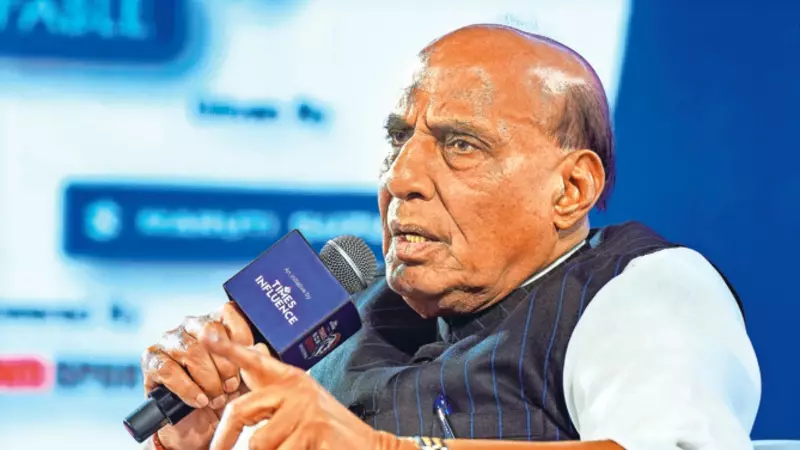
Defence Minister Rajnath Singh has made a compelling case for reforming the United Nations and establishing a new global order, stating that the current international system has failed to adequately address ongoing conflicts worldwide. The minister delivered his significant remarks during the 26th International Conference of Chief Justices of the World (ICCJW) held in his parliamentary constituency of Lucknow on Friday, November 22, 2025.
UN's Weakened Role in Global Conflicts
Speaking before an assembly of distinguished legal minds from across the globe, Singh expressed deep concern about the United Nations' limited effectiveness in handling major international crises. The Defence Minister specifically highlighted the ongoing Israel-Hamas conflict, the prolonged Ukraine-Russia war, and the severe humanitarian crises unfolding in Sudan and various African regions as situations where the UN could have demonstrated stronger leadership.
"Amid all this, we could have expected to see a much stronger role of the United Nations. We are not seeing that, but we could have," Singh stated during his address. His comments reflect growing international frustration with the UN's capacity to mediate conflicts and address humanitarian emergencies effectively.
Systemic Challenges and Power Politics
Singh clarified that the UN's limitations don't stem from lack of intent but rather from deep-rooted systemic issues. He identified three primary obstacles: the complexities of global politics, disproportionate influence exerted by major powers, and the slow pace of institutional processes that often hinder timely intervention in crisis situations.
The Defence Minister particularly criticized how major global powers selectively apply UN rules and regulations while operating with limited resources. "These factors have often raised questions about the UN's authority," he observed, adding that weakened international institutions cannot deliver meaningful results in conflict resolution and peacekeeping operations.
Revitalization Rather Than Replacement
Singh emphasized that his call for a "new United Nations" doesn't mean creating a completely fresh institution from scratch. Instead, he advocated for a comprehensive revitalization of the existing body to better align with its original core objectives of promoting peace, ensuring justice, and providing equal representation to all member nations.
"This situation can change only when we bring the United Nations back to its core objectives — peace, justice, and equal representation — as originally envisioned," Singh asserted. "I firmly believe that today's new world requires a new United Nations." His position reflects India's longstanding advocacy for UN Security Council reform and greater representation for developing nations in global decision-making processes.
Support from Uttar Pradesh Leadership
Uttar Pradesh Chief Minister Yogi Adityanath, who also addressed the conference, reinforced the need for global cooperation in tackling contemporary challenges. Adityanath drew attention to three critical global issues: climate change, cyber crime, and terrorism, urging for comprehensive discussions on these matters at international platforms, particularly within UN frameworks.
"The world is facing the challenges of climate change, cyber security and terrorism. Today, if any society or country is ignoring them, then they are creating a danger for themselves and for humanity," Adityanath warned. He cited the COVID-19 pandemic as a powerful example of how modern problems transcend national boundaries and require coordinated global responses.
The conference, which brought together chief justices and legal experts from around the world, served as a significant platform for discussing international legal frameworks and global governance structures. The participation of both national and state leadership underscored India's growing role in shaping global discourse on international relations and multilateral reform.





